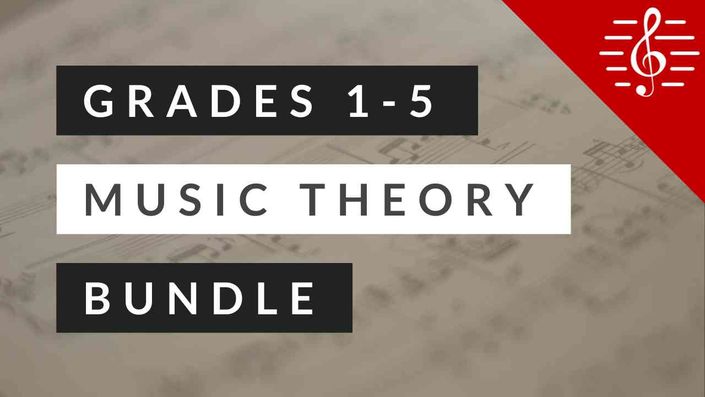Bundle Course
Become fluent in the fundamentals of music theory.
It's our belief that every musician needs to have the theory knowledge that supports their playing, singing, or composing skills. This course covers the complete fundamentals of music theory in detail, from the absolute basics, and lays the foundation for advanced music studies. It covers a range of essential music theory concepts such as notation, rhythm, scales, keys, chords, and cadences, which are fundamental to understanding and analysing music. It equips you with essential skills like reading and writing music, supported by clear explanations, numerous examples, and practice exercises. Key terms are defined, and specimen questions with helpful tips are included. As well as being suitable for candidates preparing for ABRSM music theory exams, this course also provides an excellent resource for anyone wishing to develop general music literacy skills.















